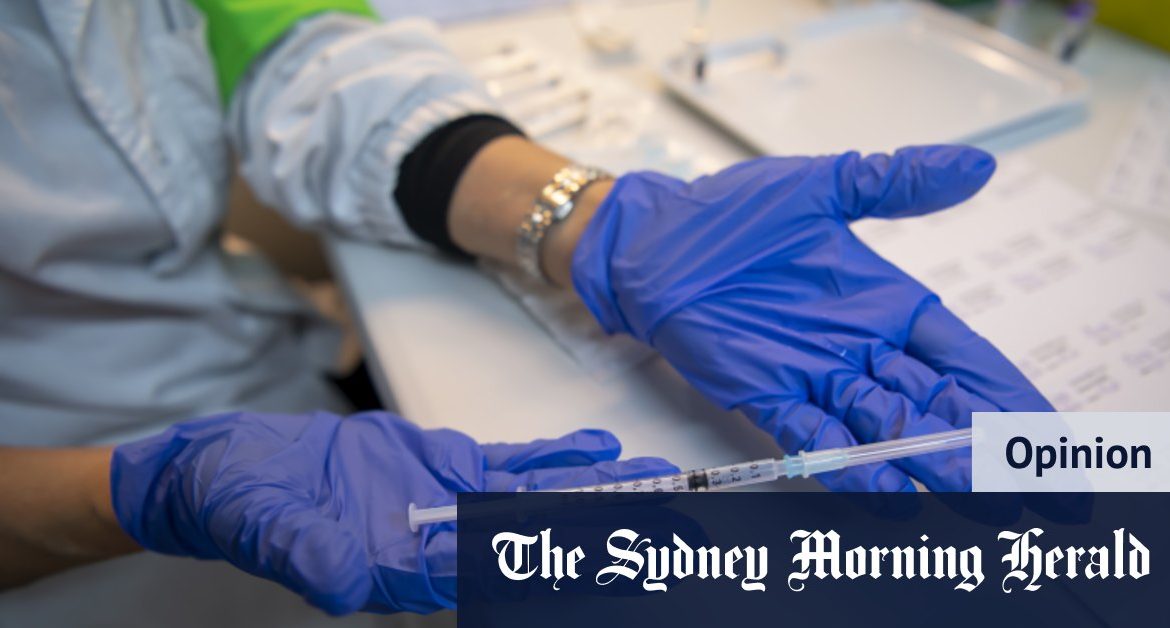Television crews will jostle to get footage of the first Australians getting the needle and there will be a frenzy of debate and discussion. We’re going to hear a lot more about how social media giants like Facebook, Twitter and Google handle misinformation from anti-vaccine groups. There will also be a renewed debate about whether getting the jab should be mandatory and if we can let people travel once they have one.
Loading
There will be disagreement and emotions will run high.
But most of all, there will finally be a sense that at some point we can get back to our lives. It will hopefully reduce outbreaks, improve the labour market and, eventually, open our borders more widely to the rest of the world.
This is exactly why getting the vaccine rolled out smoothly is going to be critical for the economy. Positive forecasts for this year are relying heavily on the vaccination to pull us through a difficult period.
$4.7 trillion and counting
The World Bank’s 2021 Global Economics Prospects report released last week expects a 4 per cent expansion in the global economy but includes the caveat that this figure relies on the vaccination getting across the line.
This won’t reverse all of the financial pain. The global economy contracted 4.3 per cent in 2020 and most countries have fared far worse than Australia. Global GDP in 2021 is likely to be 5.3 per cent below pre-pandemic forecasts, which basically means this health crisis has cost the world $4.7 trillion.
World Bank Group president David Malpass described the outlook in a statement as a “subdued recovery” still facing “formidable challenges”.
“To overcome the impacts of the pandemic and counter the investment headwind, there needs to be a major push to improve business environments, increase labour and product market flexibility, and strengthen transparency and governance,” he said. Basically, the vaccine won’t cure our economic woes on its own.
But the report still expects immunisation to be a significant factor in supporting the recovery in terms of confidence, consumption and the gradual improvement in trade.
In a positive scenario, rapidly rolling out vaccines that are highly effective could mean a “faster easing of the pandemic, triggering a sharp rise in consumer confidence and unleashing pent-up demand,” the report says.
“Industrial commodity exporters and countries with greater exposure to trade and tourism would be expected to benefit most from a faster resolution of the pandemic.” Clearly, this would benefit Australia hugely.
But in the more negative scenario outlined by the World Bank, where the vaccination deployment could be slowed by logistics and reluctance towards immunisation, there could be more outbreaks and economic growth could recover at a slow 1.6 per cent level over the year. This would be even lower, at 0.6 per cent, in advanced economies.
Don’t be misled, even with the vaccine the global economy will still be smaller than it would’ve been without the pandemic. But it’s the first of many steps towards rebuilding.
Beware the PR challenge
Getting the rollout of the vaccine correct will be the fight of our lives, in terms of both health and the economy. It is a momentous challenge for policymakers who are well aware of how critical this program will be and still have to grapple with the expectations of the public.
Loading
Outside of very difficult decisions about who gets the vaccine when, which is not as straightforward as it might first seem, the rollout is obviously a huge public relations challenge.
Four million people are likely to be vaccinated by the end of March. The federal government is clearly aware there are some sections of the community who are more reluctant than others to accept the jab and has started spending millions to tackle this concern. This spending will pay dividends if it puts minds at ease.
There will also need to be plenty of analysis and planning about how the vaccine will affect the nation’s ability to open up, avoid future lockdowns and how to best protect those who are unable to have the jab.
So for those who feel like they’re holding their breath, waiting to breathe a huge sigh of relief, it’s not quite over yet. But we are a step closer to a moment both history and all of us living through COVID are unlikely to forget.
Ross Gittins is on leave.
Business Briefing
Start the day with major stories, exclusive coverage and expert opinion from our leading business journalists delivered to your inbox. Sign up for the Herald‘s here and The Age‘s here.
Jennifer Duke is an economics correspondent for The Sydney Morning Herald and The Age, based at Parliament House in Canberra.
Most Viewed in Business
Loading







